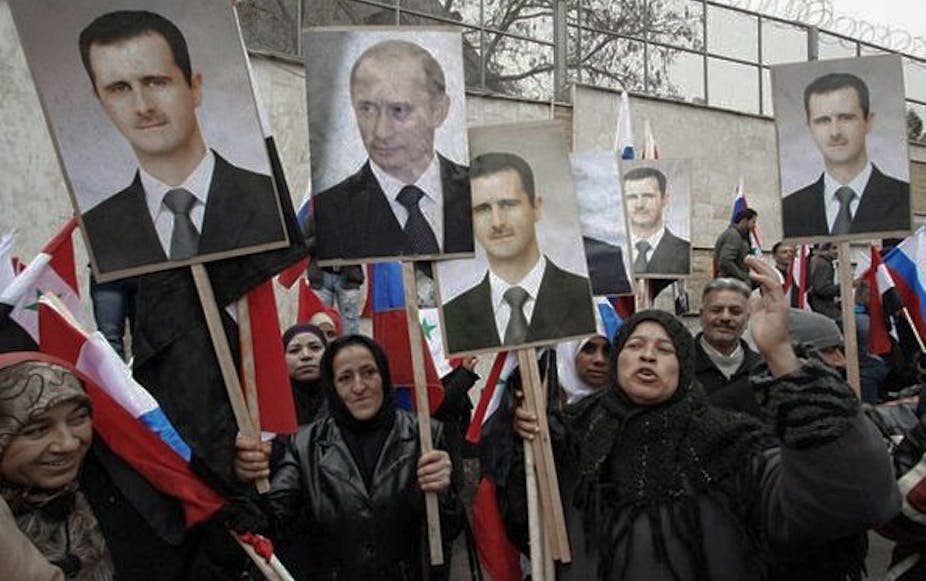As UN inspectors finally began their search for evidence of chemical weapons being used in Syria, on Wednesday Damascus apparently suffered the worst attack of this kind yet in this conflict. Some reports of casualties extend to more than 1,000 deaths. Experts who on previous occasions during this conflict were sceptical about reports of use of chemical weapons are now saying what they have seen emerge from Damascus so far suggests this really was a chemical attack.
The matter is significant because of the Convention on Chemical Weapons (CWC), to which all but a handful of states are party, and because of US President Barack Obama’s long-held stance that any use of chemical weapons by the Syrian government against its people would constitute the crossing of a red line. Syria is one of those not party to the CWC, but the narrative so far has been that it would be held to it.
These more credible reports of a chemical attack, particularly on the scale suffered in Damascus, have triggered expectations of an escalation of attempts by the international community to resolve the Syrian conflict one way or the other. The United Nations Secretary-General, Ban Ki-Moon, responded by saying he was “shocked” by the stories emerging from Damascus and asked for immediate access to the affected area for its inspectors.
Russia, however, joined China in blocking these attempts. They went further by refusing to support a hard-hitting statement on behalf of the UN Security Council, whose response so far has been tepid at best.
What lies behind Russia’s stance?
Much analysis to date has represented the Russian position on Syria as constituting a stubborn determination to stand on opposing sides to the USA. In fact, Russia has been largely consistent in its view of international intervention (notwithstanding its 2008 invasion of Georgia, which served a different goal), especially when the underlying motivation is one of regime change.
State Duma deputy Alexei Pushkov’s July 2013 comments that events in Egypt are “a blow to the myth that the Arab countries are ready for democracy” were much criticised in the twittersphere. Pushkov’s insensitive framing of the issues made criticism easy. But he was right to the extent that developments in Egypt have shown the folly of earlier rushes to judgement about the extent of democratic transformation. Other important aspects of Pushkov’s message were also lost. His additional comments to the effect that the events of the Arab spring were destabilising and a threat to regional and international order and stability were revealing of the Russian position. It is a position that has long warranted deeper consideration than it has received to date.
Russia’s concerns about the region are understandable. The conflict in Syria has already brought an increase in tensions and conflict for Lebanon and Iraq. Meanwhile, refugees have flooded into Turkey, Jordan and elsewhere, placing intolerable burdens on their hosts and leaving families living in poor conditions, entirely dependent on aid and the good will of others.
There are good reasons, therefore, to argue that poorly conceived and overly quick political change can result in a crisis situation for the very people that the change is supposed to be aiding. Russia is also not wrong to remind us that there are forces within Syria (and outside), other than Bashar al-Assad and his government, who would derive some benefit from the alleged chemical attack on Damascus.
Moscow’s credibilty in question
The problem for Russia is one of credibility. Few believe Russia is motivated by concern for anything other than the defence of Russian interests, which includes a defence of the principle of the inviolability of states. Given the undoubted human rights abuses taking place in this conflict, this is increasingly looking like poor reasoning on Russia’s part.
But Russia tends not to frame its responses to conflicts and crises in terms of the direct impact on the citizenry. Too often what it invokes are structural considerations: the economy, trade, international relations. These are undeniably important. However, in democracies at least, these structures exist to serve citizens - the means to an end, not ends in themselves. Russian political elites evince little or no understanding of this and so betray their own lack of commitment to the very values to which they have signed up in numerous conventions and treaties.
Syria’s refugee crisis alone is irrefutable evidence of the suffering of Assad’s people and yet Russia fails to comment meaningfully on this unfolding tragedy. Russia claims that both it and Syria welcome UN investigations into the use of chemical weapons: evidence from the past two days has exposed the emptiness of the Russian stance on this and exposed too the emptiness of many of its promises.

